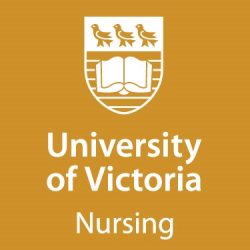Distance and distributive education is a traditional way of teaching in the School of Nursing. From my initial academic appointment, I was interested in learning and using the technology relevant to these methods of teaching and learning. I feel privileged and honored to teach across all the programs in our School. As an educator and mentor, I bring diverse approaches to shape teaching based on my experience in Greece (2005-2007) with graduate students at the University of Athens and Athens Graduate School of Management (AGSM), Nottingham Trent University, United Kingdom. Using technology and andragogic methods that seem to be an effective approach, I emphasize and promote student self-directing and responsibility for their learning.
I enjoy meeting and teaching new students every term. Most of them are eager to attain advanced skills and knowledge. As an educator, I have the mission to develop a professional learning community and use motivational teaching method to assist students achieving their full-potential. I believe that the goal of adult education is self-actualization by involving emotional, psychological and intellectual activities through the learning process. Education upgrades mental models helping students master the cognitive maps for a topic as part of their overall education; these insights may become part of the decision-making process for the rest of their lives (Goleman, 2013). Thus, I feel a tremendous responsibility for their learning experience and try to achieve my primary teaching goal: to foster student self-confidence! I believe that through trusting relationship building process, teaching is like being a knowledgeable guide capable to generate interest and convey enthusiasm on a specific topic.
My conceptual framework that guides my teaching in the distance education program is a combination of the socio-constructivist ideas with a well-structured course syllabus, supportive and student-oriented classroom culture, and cognitive activation by challenging the course content and promoting student reflection. So far, this approach has been shown to be effective.
Student encouragement to use and engage in knowledge translation practices builds self-confidence. Asking critical questions, triggering discussions, and initiating dialogue with reflective reasoning are some of my teaching strategies to facilitate student learning and professional growth, and to mitigate their fear of statistics and intimidation of quantitative research. In attempting to create a safe learning environment in distance education context is challenging. But use of funny stories, pictures and humorous examples in weekly learning activities, being patient, and having compassion and confidence to the process are all good strategies to keep students motivated and going. I also use my own research projects as examples of the challenges a quantitative researcher might face.
As an educator, I have experienced and will continue facing challenges and make mistakes; but these will make me a better teacher. For example, I believe that a teacher should focus on areas of student weaknesses, instead of their achievements, in order to improve those areas that need further development. Personally in my evaluations, I am always interested in areas for improvement ; not so much on accomplishments. Why? Because I do care about students’ learning and competencies to become leaders in the health section and outspoken healthcare professionals, who will contribute to and advance health policies and show what nurses can and should do. I want our school to produce strong graduates who will use the gained knowledge to become better citizens and advocate with evidence unfortunate ones. Also, this approach to teaching might be associated with cultural or experiential learning and training. The fact is that this approach frustrates students and make them provide unfavorable (or weak) feedback on my teaching style. In the future, I will better facilitate student learning and knowledge, and emphasize their achievements without ignoring weaknesses. I am still learning all that I do not know and will always be. If there is any workshop or opportunity to improve my skills on how to provide critical feedback to students, I will definitely attend it. Maturing as an educator takes time, energy and personal commitment. The key is in being open to change and challenging assumptions I may hold. As the legendary Isaac Asimov said, “Your assumptions are your windows on the world. Scrub them off every once in a while or the light won’t come in” (Smith, 2000, p. 62).
My main learned lesson so far is that an assessment of students’ needs and previous knowledge is required prior the development of a course syllabus. Since this is impossible, I usually assess student foundational knowledge on the course topic by using an evaluation test in the first week of each term. Then, I accordingly make necessary changes and adjustments in the course syllabus. In the following teaching assignments, I would attempt using the newly developed (by our UVic research team) Research Competencies Assessment Instrument for Nurses (RCAIN) (Mallidou et al., accepted). Finally, I have also noticed that when I provide feedback more often and create tables by summarizing the main points of the weekly readings, students can easily navigate the course content, comprehend, and digest the main concepts.
References
Goleman, D. (2013). Focus: The hidden driver of excellence. New York, NY: HarperCollins.
Mallidou, A.A., Borycki, E., Frisch, N. & Young, L. (accepted; see Publications). Research Competencies Assessment Instrument for Nurses (RCAIN). Journal of Nursing Measurement. This copyrighted instrument is available to the scientific community licensed under a Creative Commons Attribution-Noncommercial-ShareAlike 4.0 International License (CC BY-NC-SA 4.0).
Smith, P. J. (2000). Onward! Twenty-five years of advice, exhortation, and inspiration from America’s best commencement speeches. P. J. Smith (Ed.) Retrieved from https://books.google.ca/books?id=4f0xBB8sBusC&printsec=frontcover#v=onepage&q&f=false


